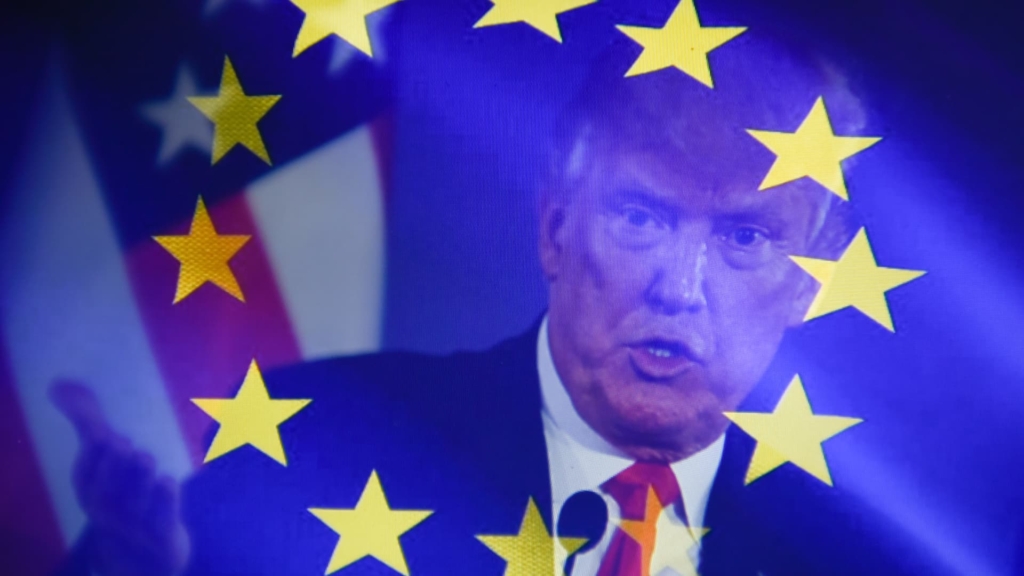The European Union has opted to delay the implementation of retaliatory tariffs on a range of U.S. products for a period of 90 days, as announced by European Commission President Ursula von der Leyen. This decision comes shortly after the White House extended its own pause on various tariffs.
On Wednesday, member states of the EU voted to back a package aimed at countering the U.S. imposition of 25% tariffs on steel and aluminum introduced last month. These tariffs were scheduled to be finalized within days, with some set to come into effect on April 15. A comprehensive list of affected products has not yet been disclosed, though a draft shared with Finance Newso in March indicated that the range would include clothing, poultry, grains, and machinery, among others.
“We acknowledged President Trump’s announcement. We are willing to allow negotiations to proceed,” von der Leyen stated on Thursday.
“Should these negotiations not yield the desired outcomes, our countermeasures will be activated. Work on additional responses is ongoing. As previously mentioned, all options remain viable.”
In addition to Trump’s 25% tariffs on steel, aluminum, and automobiles, the EU has been subjected to a sweeping 20% tariff rate on nearly all goods as part of the recent tariff structure announced last week.
On Wednesday, Trump made headlines by revealing a temporary reduction of tariff rates on imports from the majority of U.S. trade partners to 10% for 90 days, geared toward facilitating trade discussions.
The announcement led to a surge in U.S. stock markets, with both Asia-Pacific and European markets also experiencing gains on Thursday. By midday in London, the euro had appreciated 1.2% against the U.S. dollar, trading at $1.1079.
Earlier on Thursday, von der Leyen expressed her support for the suspension of Trump’s full “reciprocal tariff” approach, labeling it a “significant step towards stabilizing the global economy.”
“Tariffs function as taxes that adversely affect businesses and consumers alike. This is why I have consistently pushed for a zero-for-zero tariff agreement between the European Union and the United States,” she remarked.
In addition to its negotiations with the U.S. and the preparation of countermeasures, the EU is actively working to strengthen and diversify its trade relations and to minimize friction within its single market as a response to the U.S. tariffs.
Relations between the EU and the U.S. have notably deteriorated this year, with Trump frequently criticizing the 27-nation bloc for what he perceives as unfair treatment due to the trade imbalance.
When analyzing trade in goods, services, and investment, the exchanges between the two economies appear roughly balanced, raising the prospect that the EU may contemplate targeting U.S. services, including technology, in future retaliatory measures.


























